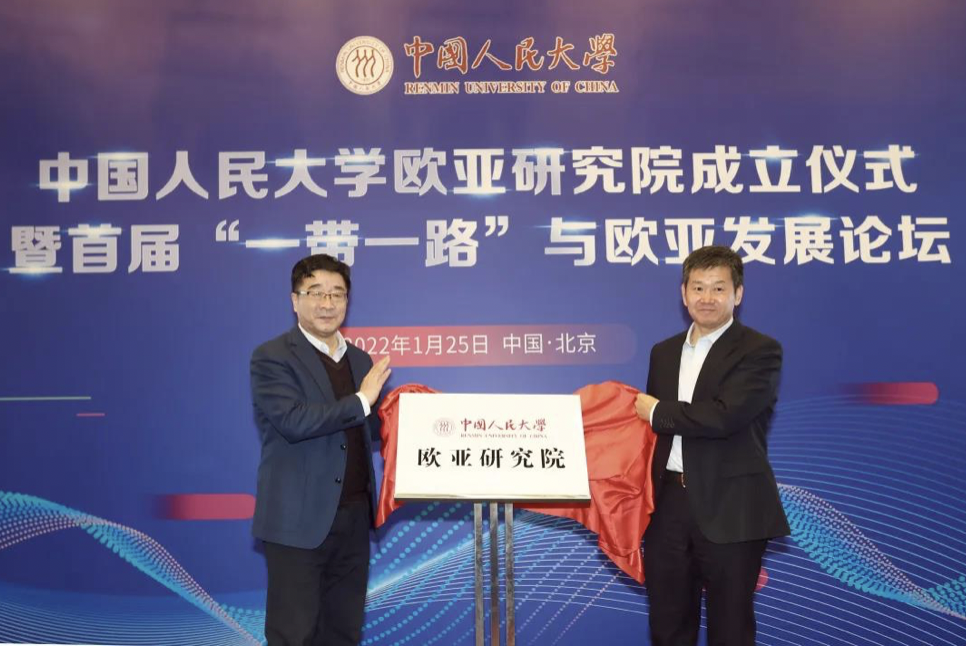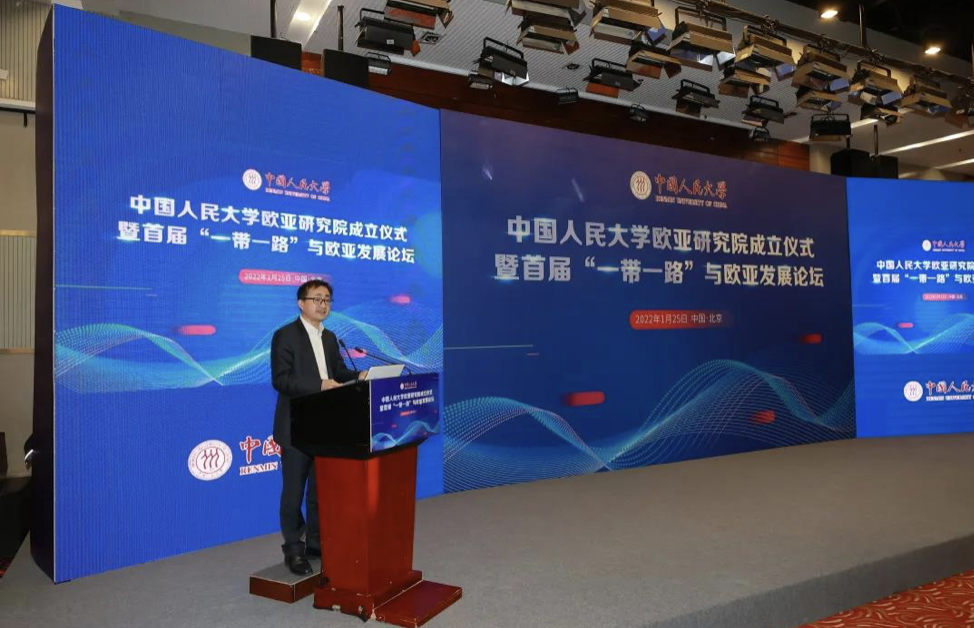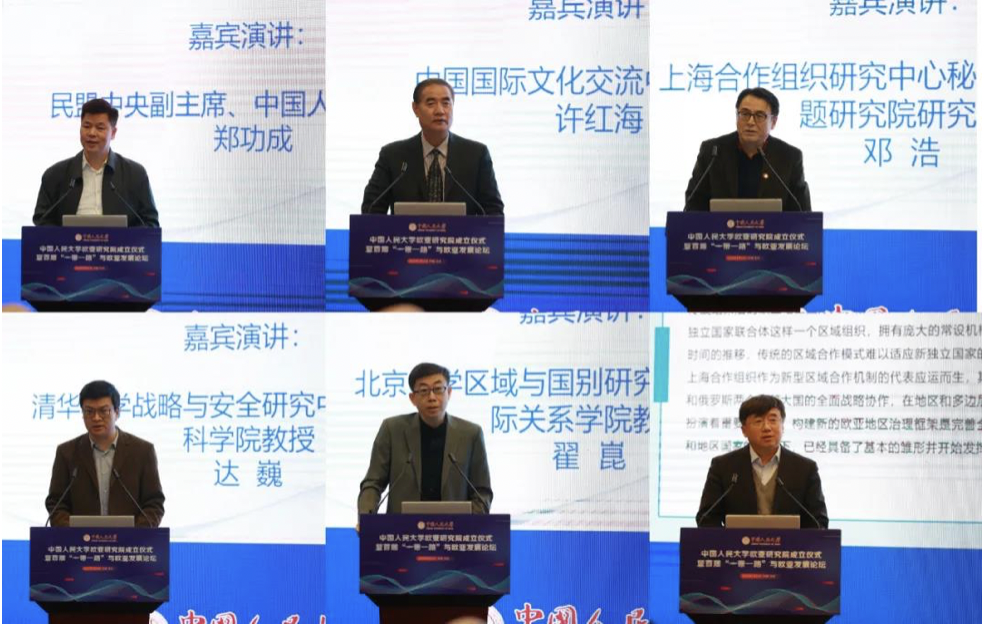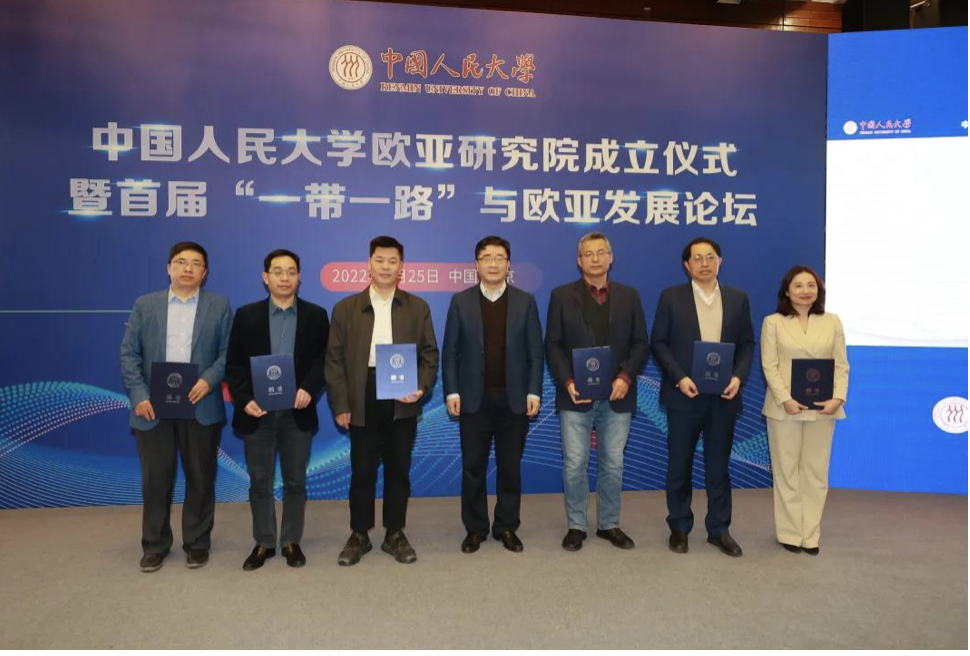26
January
The inauguration ceremony for the Eurasian Research Institute of the Renmin University of China and the first Belt and Road and Eurasian Development Forum was held on January 25 in Beijing. The Eurasian Research Institute will carry out in-depth research on topics such as regional and country studies, global governance, economic development, social governance, public diplomacy and the Belt and Road Initiative (BRI), deepen the development of relevant disciplines with Chinese characteristics, establish an interdisciplinary and knowledge-based system and build a national and global academic community of Eurasian studies.

Liu Wei, President of Renmin University of China (RUC) said that the university will strive to make the institute a center of talent, ideas, policy service and publicity for Eurasian studies, as well as a first-class think tank for Eurasian studies in China and beyond and another high-end think tank after the National Academy of Development and Strategy and the Chongyang Institute for Financial Studies,the newly-established institute will contribute to building a sense of the entire Chinese nation, serving China’s great rejuvenation, and promoting the building of a community with a shared future for the mankind.

Officials from the United Front Work Department of CPC Central Committee said that the Eurasian continent is not only a large arena for shaping the security of China’s northwest periphery, but also a big market for the BRI built with joint efforts and a large channel for opening to the west. The establishment of the Institute comes at a perfect time. The Institute should utilize the role of Xinjiang as an opening portal to the west, tell stories of the people in Xinjiang to the outside world, make the voices of the people of all ethnic groups in Xinjiang heard, resolve doubts and build consensus, build friendly ties for the BRI, and contribute to the stable development of Xinjiang. It is hoped that with an open mind, the Institute could attract more talents from overseas and foreign countries, especially universities and the private sector of Eurasian countries.

Former and Honorary President of Montenegro, Filip Vujanovic, former French minister for the environment and chair of the Business and Climate Summit, Brice Lalonde explained that Eurasian affairs are the key to determining the future of Europe, Asia and the entire human civilization more than ever. It cannot be ignored that challenges such as multiple terrorism, sustainable development, global warming, ecological production of green energy and preventing natural disasters and diseases are growing day by day. The institute has provided a very good platform for cooperation to further strengthen the connection between Asia and Europe.

Xu Qinhua, Vice President of the National Academy of Development and Strategy released the Eurasian Regional Development Report on behalf of the research team. The report focuses on country studies in Eurasia and regions in this ever-changing century and draws two conclusions: First, one of the major risks affecting global development in 2022 is the geopolitical situation in Eurasia. Second, with the matured development of key technologies such as the new generation of high-speed rail, new energy, 5G communications, and UHV power transmission and transformation, there has emerged the "New Eurasia Era", the old concept of the great game in Eurasia has been replaced by the new one. Therefore, country studies in Eurasian are of great significance and closely related to the rejuvenation of China and a community with a shared future for mankind. Right now the world is struggling under the rampant epidemic caused by COVID-19, the game between major powers, geopolitical conflicts, and both old and new hot issues are intertwined. The continent is going through a major transformation and a big game and once again has become the focus of global governance.